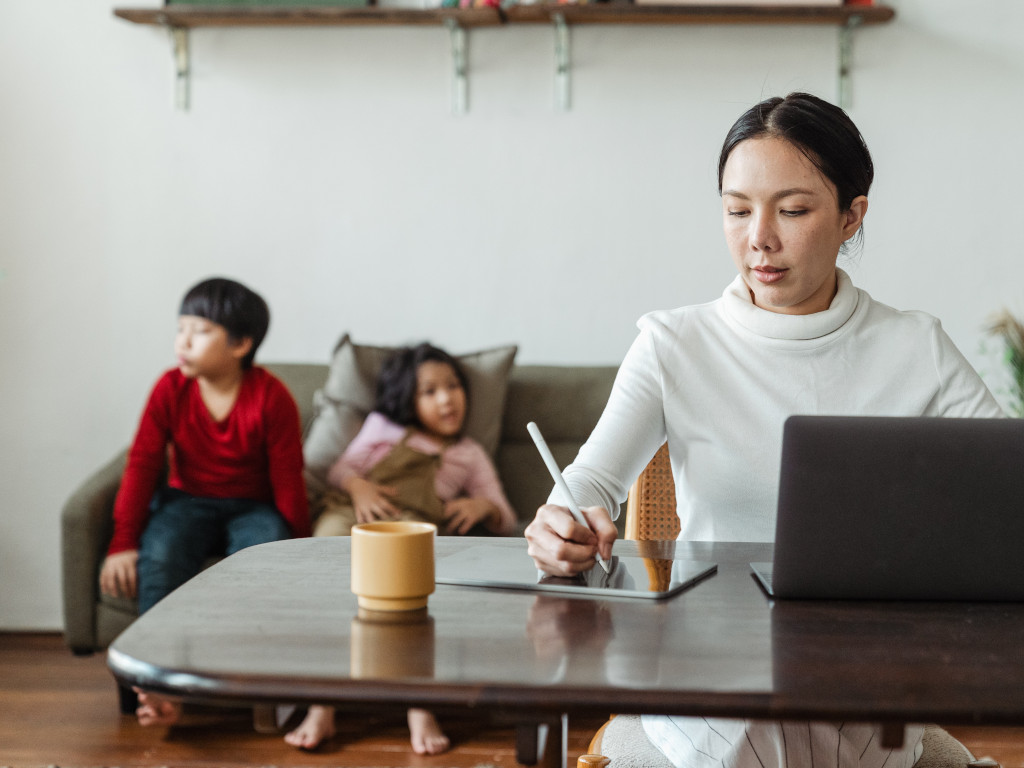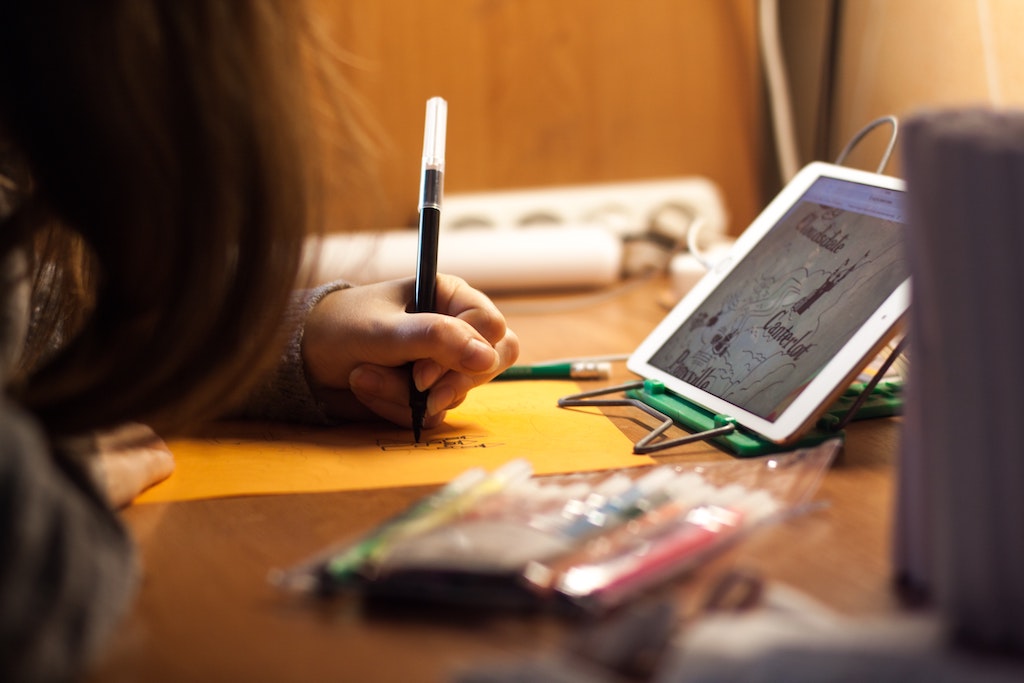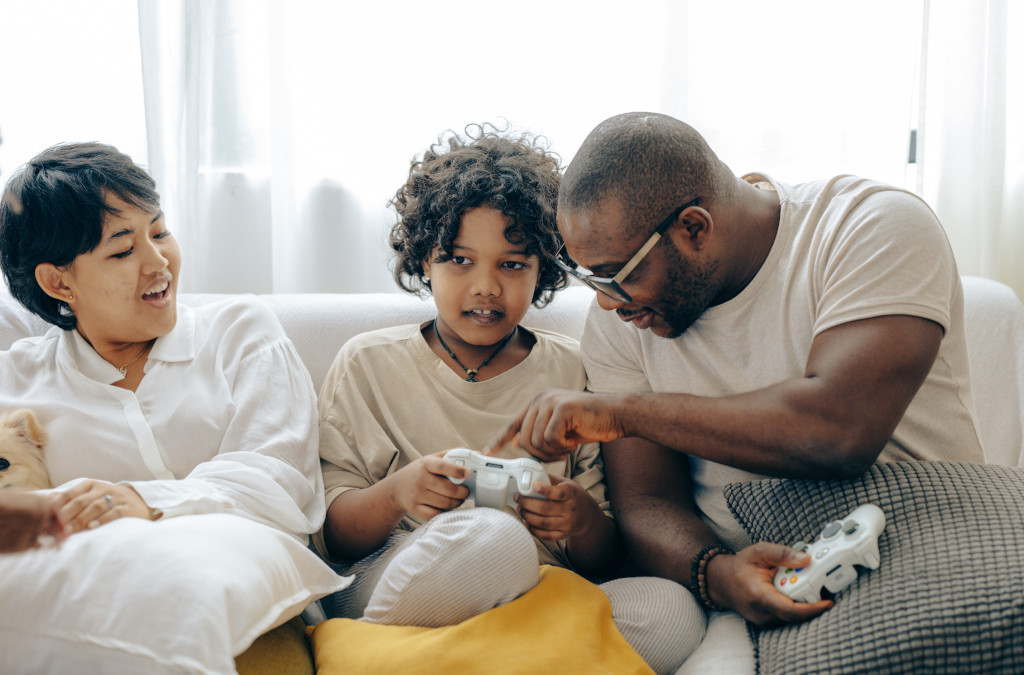SingaporeMotherhood | Family Fun
May 2023
Ways to (Not) Keep Your Kids Entertained during the School Holidays

“Junia,” many mums want to know, “how do you keep your five kids entertained during the school holidays?” My secret? I don’t. Instead, I delegate the responsibility of keeping each child occupied back to them.
The first time my daughter fell dramatically onto the couch was a Friday morning at the start of the school holidays many years ago. “I am so bored!!!” she wailed. Turning to her, I foresaw a huge bubble of what could become my responsibility for the next month. Unless — my mind raced — I did something to quickly change her mindset.
With a smile, I invited her to create her own solution to her melodramatic boredom.
“Come here,” I began. “Mummy’s busy because I’ve got a lot of things I am excited to accomplish. Since you are bored, that’s something you are going to have to solve. You’ve got a whole month — what would you like to achieve?”
(See also: Why You Need to Let Your Child Be Bored)
Mums (and Dads) Can’t Do It All
My intention was to communicate that while her schedule had changed, mine was not going to because mummies aren’t students. Our yearly calendar generally does not include extended holiday breaks from our main responsibilities.
The sooner she understood that we had different schedules, the easier it would be for her to appreciate any changes I made in my calendar to accommodate her. I made it clear that I could not and was not going to drastically change my timetable just to keep her entertained, because she was capable of creating solutions for herself.

“You get to do the things that you’ve always wanted to do,” I said enthusiastically. “So grab a piece of paper and gather your siblings. Because you’re each going to brainstorm for all the activities you want to accomplish by the end of this month. What are new skills you want to learn? Places you want to visit? Fun activities you want to try? If it’s not on the paper, we won’t do it.”
They excitedly spent the next 30 minutes creating a list to share at dinnertime.
The simple act of brainstorming created a list of activities they could now refer to instead of looking to me to fill their free time. It was intentional that they owned their list, so I told them to make it as long as possible. (In the process, they also forgot they’d been bored. *wink*)
(See also: How to Create Empowering Habits That Don’t Hold You Back)
Caveats and Quality Time
After they shared their wishlist that evening, I inserted a few ideas of what I would like them to include. But first, I acknowledged their choices. “I love how you have movies, various exercises, games, Legoland, and more fun. Guess what’s one category that’s missing?”
“Homework?” one chirped, tongue firmly in cheek.
“I get there’s no school homework, and you know I want you to have fun. But how about using the holidays to improve on just one subject each? You decide which is the one subject you’d like to focus on. We could build up your language vocabulary, discover science applications, or practise Maths sums. Mummy will avail myself for 30 minutes for each of you during our learning joys.”
Requesting that they each focused on just one subject made it easy to accept. All of them complied with my ask. We decided to schedule it in the mornings so that they were free to entertain themselves for the rest of each day. They could also do more work if they wanted, but it was not compulsory. Only our 30 minutes was.
A strong sense of responsibility is a transferable life skill that sets them up for proactive success. Giving children autonomy empowers them.
Different parents have different ideals on the work they would like to see their child achieve. You decide what a healthy balance looks like. For me, holidays are the best time to develop ownership of the quality of each day.
(See also: Growing up in a Smart Nation: How to Balance Our Children’s Online and Offline Worlds)
The Screen Time Conversation

The other big conversation we had was about setting limits on their screen time after they had completed their work. By the way, don’t feel like you need to have all these conversations in one sitting. Feel free to break them up depending on your child’s availability, state of mind, capacity, readiness, and age.
“If we limit our daily screen time to one hour, how would we use it? Would you want to watch a show as a family, play computer games, watch YouTube videos, or…?”
I opened the discussion with an hour and gave them the freedom to decide what to spend it on. The reason many screen time limits are broken is because parents set time limits without identifying the specific activities. Or they set blanket limits without enforcing them.
What could ensue is either an explosion when we notice them playing iPad games for too long (a result of inconsistent implementation) or a power struggle. We insist they stop right in the middle of a game because their time is up. Understanding the nature of their screen activity prevents such unnecessary outbursts and unhappiness.
(See also: Anxiety in Children: How to Help Your Child Keep Calm & Carry On)
To create screen time limits that actually work and are enforceable, I implemented these three supporting structures:
1. Two-way Communication

I discovered ‘MM2’ is a real-time game that lasts about two minutes per game. It involves other teammates who might lose should you exit the game suddenly. Our agreement included a maximum of 10 games to fit within the time limit, combined with a timer that they would take responsibility to start themselves (the timer also works great for YouTube video binges).
Together, we also decided on two 40-minute family shows on weekdays, plus movie nights on the weekend. They also got an additional 20 minutes of games or YouTube, but only after completing their household chores. The fact that they distinguished a 40-minute episode from a two-hour-long movie reflected the depth of the conversation and their active participation in considering what was fair to them. It also shows that they were taking ownership, which would translate into being more responsible.
Allowing for flexibility meant that we could swap a movie for two episodes if everyone agreed. Additional screen time for specific research, homework, or socialising was also available — they just had to request. While my answer was normally a “Yes” (they had to give an estimated time limit), every ask communicated that they did not have unlimited screen time.
(See also: “COVID-19 Sent My Family’s Screen Time Sky High. Why Aren’t Your Kids Addicted?”)
2. Common Charging Point
All digital devices must be returned to our common charging point (in the living room) as soon as they are not in use. This not only removes the temptation to use any device in the privacy of their rooms. But it also creates a positive habit where everyone understands screen time as an activity ends as soon as they return the device to its rightful place, including us, parents!
If any of us lose track of time, all it takes is a gentle reminder from another family member. And remember, it’s not about calling someone out or shaming them, but to help them avoid getting into trouble.
3. Create Alternatives
The more we fill our little ones’ time with off-screen activities, the easier it is for them to stay off-screen even as they grow up, because the alternatives have been normalised for them.
Lots of fun non-screen alternatives like going to the playground, cycling, baking, cooking, playing make-believe, reading, household contributions, and even visiting the neighbourhood mall can all become independent activities once the routine is set. Children own their daily schedules more as we empower and trust them with responsibilities and privileges.
Of course, every family has different existing screen time habits, so use these principles as a guide for what makes sense for you. If your children currently use screens all day long, starting at one hour a day would seem terribly unfair. Not to mention practically impossible to implement, much less sustain. Start slightly below what they are currently doing and work your way to a compromise in between. The goal is to help them identify what the activity means to them and to come up with boundaries they can own.
(See also: 8 Fun School Holiday Learning Activities for Preschool and Kindergarten Children)
So Don’t Keep Your Kids Entertained this School Holidays — They’ve Got It!
I concluded the conversation by asserting my stand:
“I want you to know that it’s also perfectly fine if you are ‘bored’ because that’s your choice. You can fill your time with exciting activities that engage your creativity and passions. But you can also exercise your mental dexterity and your imagination — the list goes on! Even catching up on sleep is responsible because you need to look after yourself by ensuring adequate rest.
However you choose to spend your time, you’ll reap your results accordingly. May we each be kinder, wiser, and expanded at the end of this month!”

Additional Tips:
Young Children (under 6 years) – Structures serve younger children well because boundaries provide a sense of security. Knowing what to expect creates a certainty which is important in early childhood. Ease them towards independent play, household contributions (including helping out in meal preparations), and non-screen alternatives.
Older Kids (7 to 12 years) – Return the responsibility of time usage to them because it is the perfect opportunity to further their interests and create purposeful learning moments. Implementing such routines is easiest during school holidays because of the repetition on a daily basis. Encourage them to deep-dive into their interests in the absence of homework and school.
Teenagers (13 to 19 years) – Build the relationship. Regardless of where your relationship is with them now, schedule in one-on-one parent-child time once a week. Have a meal out, watch a movie, ask them to teach you to play a game (or the guitar or their favourite sport), or simply go sun-tanning together.
Many parents (mistakenly) assume that their independent teen needs them less than the younger ones do. They think that friends matter more to a teen, when, in fact, the confusing teenage years are when they need the most parental guidance, acknowledgement, and affirmation of your love. Take time to show them how special they still are to you!
(See also: June School Holidays 2023: Fabulous Fun for Kids and Families)
 | Author of “The Naked Parent”, founder of Mum Space, and mother to five amazing children, Junia is a respected thought-leader in the parenting space. Recognised for empowering parents and kids with her 21st-century parenting model for over a decade, she now brings her ‘Modern Asian Mother’ expertise and experience to this exclusive SingaporeMotherhood column. |
Featured image: Ketut Subiyanto on Pexels
All content from this article, including images, cannot be reproduced without credits or written permission from SingaporeMotherhood.
Follow us on Facebook, Instagram, and Telegram for the latest article and promotion updates.





